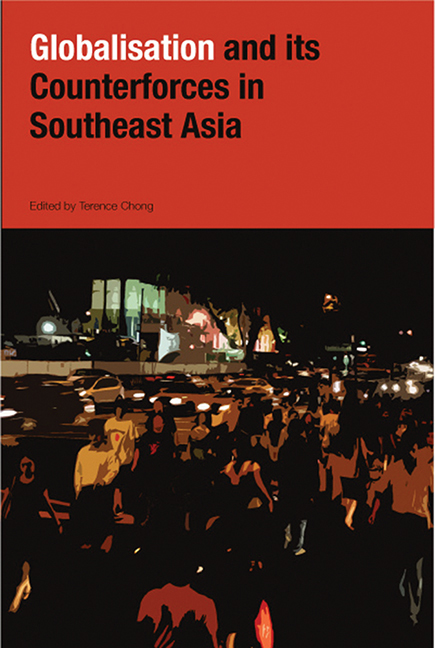Book contents
- Frontmatter
- Contents
- Foreword
- Preface
- The Contributors
- Introduction
- Part I The Political Contradictions of Globalization
- Part II Economic Regionalism and Global Influences
- 6 Globalization and the Role of the State in the Asia-Pacific
- 7 Economic Nationalism and the Limits of Globalization
- 8 Southeast Asian Perspectives on the Economic Rise of China
- Part III Local Security, Global Insecurity
- Part IV Social Processes: Arrested Development
- Part V Cultural Production in the Global Matrix
- Index
7 - Economic Nationalism and the Limits of Globalization
from Part II - Economic Regionalism and Global Influences
Published online by Cambridge University Press: 21 October 2015
- Frontmatter
- Contents
- Foreword
- Preface
- The Contributors
- Introduction
- Part I The Political Contradictions of Globalization
- Part II Economic Regionalism and Global Influences
- 6 Globalization and the Role of the State in the Asia-Pacific
- 7 Economic Nationalism and the Limits of Globalization
- 8 Southeast Asian Perspectives on the Economic Rise of China
- Part III Local Security, Global Insecurity
- Part IV Social Processes: Arrested Development
- Part V Cultural Production in the Global Matrix
- Index
Summary
INTRODUCTION: ECONOMIC NATIONALISM AND ECONOMIC GLOBALIZATION
Events since the closing years of the 1990s seem to indicate a turn to what is popularly termed economic nationalism, an approach that is said to privilege individual state interests and the adoption of interventionist or illiberal economic policies, particularly trade protection, to fulfil the state'S declared developmental goals. Economic nationalists who endorse such protectionist and self-serving policies, it is claimed, have little regard for the interests or well-being of other states and communities that may be harmed by these policies. Economic nationalism has been blamed for the failure of the World Trade Organization (WTO) to initiate a new round of global liberalization at the 1999 Seattle Ministerial Meeting as both industrial and developing countries sought to safeguard their respective national interests and were unwilling to compromise for the good of the multilateral trading system as a whole. Global trade talks have been in limbo since then, with no agreement reached either in 2003 at the Cancun Ministerial or at the 2005 Hong Kong Ministerial. Latin America is currently posing deep concern, especially to economic and financial circles due to the “wave of nationalizations” in countries like Venezuela, Bolivia and Ecuador. Resistance by developed country governments, in France for instance, to foreign purchases of domestic/national firms even when national security considerations are minimal is another disturbing trend emerging in the world economy that is attributed to the rise of economic nationalism. Post-millennium actions of the United States have also caused some concern for the world political economy, with the seemingly nationalist George W. Bush administration introducing tariff protection on imports of steel and clothing and imposing anti-dumping duties on Vietnamese catfish imports in order to protect U.S. industry and jobs. The debate over the outsourcing of high-skilled knowledge-based jobs from the United States, which featured as a central election issue during the 2004 Bush-Kerry presidential campaign, was also informed by a degree of nationalist concern about the long-term strength of the U.S. economy if the latter continued to experience a hollowing out of high-technology activities.
- Type
- Chapter
- Information
- Globalization and its Counter-Forces in Southeast Asia , pp. 134 - 168Publisher: ISEAS–Yusof Ishak InstitutePrint publication year: 2008

